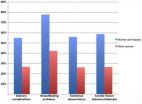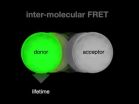(Press-News.org) PROVIDENCE, R.I. – A researcher at the Cardiovascular Institute (CVI) at Rhode Island, The Miriam and Newport hospitals has found that a new class of drugs, originally developed to treat cancer, reduces sudden cardiac death risk after a heart attack. The findings were published online in advance of print in the Journal of the American College of Cardiology.
"Currently, there are limited options to reduce sudden cardiac death following a heart attack," said principal investigator Samuel C. Dudley, M.D., Ph.D., chief of cardiology at the CVI. "The benefit of most drugs is limited, and they have additional side effects. Defibrillators are an option, but they cannot be safely implanted for 40 days following a heart attack."
Dudley continued, "This finding gives us hope for a new treatment model, and if approved, will provide physicians with new options to lower patients' risk of death from cardiac arrest."
Approximately 525,000 people suffer a first heart attack, or myocardial infarction, each year in the U.S., and there are an estimated 190,000 recurrent heart attacks each year. Following a heart attack, individuals are at an increased risk of sudden cardiac death (SCD).
In this study, researchers evaluated mice that had sustained a heart attack and also had abnormal heartbeats. The study found that inhibition of a protein signal known as c-Src decreased the risk of abnormal heartbeats and sudden cardiac death. This suggests usefulness of c-Src inhibition in preventing arrhythmias associated with heart failure. This use of Src inhibitors for treatment of sudden cardiac death risk has been submitted for a patent.
"More research is needed to evaluate the efficacy of this use of a cancer medication to alleviate risk of sudden cardiac death, but we are hopeful that what we observed in mice will translate effectively to humans, providing patients and clinicians with a new paradigm for treating this common and life-threatening illness," Dudley said.
Sudden cardiac death (SCD) is an unexpected death caused by loss of heart function, or sudden cardiac arrest. It is the most common cause of natural death in the U.S., resulting in approximately 325,000 adult deaths in the U.S. each year.
INFORMATION:
Contact:
Ellen Slingsby401-444-6421
eslingsby@lifespan.org
Twitter: @eslingsby
Funding sources included National Institutes of Health grants (P01 HL058000, R01 HL1024025, R01 HL106592), Veterans Administration Merit Award, and R41 HL112355, awarded to Dudley; National Center for Advancing Translational Sciences of the National Institute of Health (TL1 TR000049, awarded to Cody Rutledge); British Heart Foundation Travel Fellowship (FS/11/69/29017, awarded to Fu Siong Ng, M.D., Ph.D); National Institutes of Health (R01 HL114395 and RO1 HL085369, awarded to Igor Efimov, Ph.D). Dudley's principal affiliation is the Cardiovascular Research Center, Lifespan Cardiovascular Institute. He also has an academic appointment at The Warren Alpert Medical School of Brown University. Other researchers are Cody Rutledge; Artem Sergeyenko; Hong Liu, M.D., Ph.D; Ian Greener Ph.D; and Ali Sovari M.D. of the University of Illinois at Chicago; Fu Siong Ng, M.D., Ph.D; Matthew Sulkin; and Igor Efimov, Ph.D, of Washington University, St. Louis, Mo.; and Joanna Gemel, Ph.D; and Eric Beyer, M.D., Ph.D, of the University of Chicago.
About the Lifespan Cardiovascular Institute
The Cardiovascular Institute (CVI) of Rhode Island, The Miriam and Newport hospitals is the largest center in the state dedicated to cardiology and cardiac surgery. Services are provided by teams dedicated to providing high quality, innovative patient care and performing clinical trials and cutting-edge research at the CVI's Cardiovascular Research Center. All care is provided by board-certified physicians and surgeons who also serve as faculty at The Warren Alpert Medical School of Brown University. Services include cardiovascular imaging and surgery; interventional cardiology; echocardiography and stress testing; electrophysiology; congenital heart program; the medical heart failure and cardiac transplant program; advanced valve management; and more. Rhode Island, The Miriam and Newport hospitals are all part of Lifespan, the state's largest health system. For more information, visit http://www.cardiac.lifespan.org/.
Cardiovascular Institute researcher: Cancer drug may lower sudden cardiac death risk
Sudden cardiac death affects 50 percent of heart failure patients
2014-02-24
ELSE PRESS RELEASES FROM THIS DATE:
Toxic injection with elastic band
2014-02-24
This news release is available in German.
Bacteria have developed many different ways of smuggling their toxic cargo into cells. Tripartite Tc toxin complexes, which are used by bacteria like the plague pathogen Yersinia pestis and the insect pathogen Photorhabdus luminescens, are particularly unusual. Stefan Raunser from the Max Planck Institute of Molecular Physiology in Dortmund and his colleagues from the University of Freiburg have produced extremely accurate and detailed images of these "toxic injections"; they reveal from where the molecule complexes take ...
Precursor of multiple myeloma more common in blacks than whites, Mayo study finds
2014-02-24
ROCHESTER, Minn. — Feb. 24, 2014 — Blacks may be twice as likely as whites to develop multiple myeloma because they are more likely to have a precursor condition known as monoclonal gammopathy of undetermined significance (MGUS), a Mayo Clinic study has found. Not only is MGUS more common in blacks, but the type seen in the black population is also more apt to have features associated with a higher risk of progression to full-blown multiple myeloma, a cancer of a type of white blood cell in bone marrow.
The findings, which appear in the journal Leukemia, are from the ...
Higher risks among perinatal women with bipolar disorder
2014-02-24
PROVIDENCE, R.I. [Brown University] — Pregnant and postpartum women with bipolar disorder more frequently have significant mental health and early mothering challenges than other perinatal women undergoing psychiatric treatment, according to a study in the Journal of Affective Disorders. The findings indicate the importance of properly identifying the disorder and developing specific treatments for women during and after pregnancy, the lead author said.
"Similar to what you find with bipolar disorder in the nonperinatal population, the overall level of clinical severity ...
In the eye of a chicken, a new state of matter comes into view
2014-02-24
Along with eggs, soup and rubber toys, the list of the chicken's most lasting legacies may eventually include advanced materials such as self-organizing colloids, or optics that can transmit light with the efficiency of a crystal and the flexibility of a liquid.
The unusual arrangement of cells in a chicken's eye constitutes the first known biological occurrence of a potentially new state of matter known as "disordered hyperuniformity," according to researchers from Princeton University and Washington University in St. Louis. Research in the past decade has shown that ...
Watching how the brain works
2014-02-24
Coral Gables, Fla (Feb. 19, 2014) -- There are more than a trillion cells called neurons that form a labyrinth of connections in our brains. Each of these neurons contains millions of proteins that perform different functions. Exactly how individual proteins interact to form the complex networks of the brain still remains as a mystery that is just beginning to unravel.
For the first time, a group of scientists has been able to observe intact interactions between proteins, directly in the brain of a live animal. The new live imaging approach was developed by a team of ...
Costs vary widely for care of children with congenital heart defects across US hospitals
2014-02-24
Ann Arbor, Mich. – Costs of care differ significantly across hospitals for children born with heart defects, according to new research led by a University of Michigan researcher. Congenital heart defects are known to be the most common birth defects, impacting nearly 1 in every 100 births.
The cost of care for children with congenital heart disease undergoing surgical repair varied as much as nine times across a large group of U.S. children's hospitals, says lead author Sara K. Pasquali, M.D., M.H.S., associate professor of pediatrics at the University of Michigan Medical ...
Opioid abuse initiates specific protein interactions in neurons in brain's reward system
2014-02-24
(New York) – Identifying the specific pathways that promote opioid addiction, pain relief, and tolerance are crucial for developing more effective and less dangerous analgesics, as well as developing new treatments for addiction. Now, new research from the Icahn School of Medicine at Mount Sinai reveals that opiate use alters the activity of a specific protein needed for the normal functioning of the brain's reward center. Investigators were able to block the protein, as well as increase its expression in the mouse nucleus accumbens, a key component of the brain's reward ...
Abdominal fat accumulation prevented by unsaturated fat
2014-02-24
New research from Uppsala University shows that saturated fat builds more fat and less muscle than polyunsaturated fat. This is the first study on humans to show that the fat composition of food not only influences cholesterol levels in the blood and the risk of cardiovascular disease but also determines where the fat will be stored in the body. The findings have recently been published in the American journal Diabetes.
The study involved 39 young adult men and women of normal weight, who ate 750 extra calories per day for seven weeks. The goal was for them to gain three ...
Medical researchers use light to quickly and easily measure blood's clotting properties
2014-02-24
VIDEO:
This video shows the rapid "twinkling " or intensity fluctuations of the speckle pattern in a drop of unclotted whole blood. The rapid "twinkling " is due to the fast thermally-driven motion...
Click here for more information.
WASHINGTON, Feb. 24—Defective blood coagulation is one of the leading causes of preventable death in patients who have suffered trauma or undergone surgery. The body's natural defense against severe blood loss is the clotting ...
NIST microanalysis technique makes the most of small nanoparticle samples
2014-02-24
Researchers from the National Institute of Standards and Technology (NIST) and the Food and Drug Administration (FDA) have demonstrated that they can make sensitive chemical analyses of minute samples of nanoparticles by, essentially, roasting them on top of a quartz crystal. The NIST-developed technique, "microscale thermogravimetric analysis," holds promise for studying nanomaterials in biology and the environment, where sample sizes often are quite small and larger-scale analysis won't work.*
Chemical analysis of nanoparticles is a challenging task, and not just because ...
LAST 30 PRESS RELEASES:
Study reveals insights about brain regions linked to OCD, informing potential treatments
Does ocean saltiness influence El Niño?
2026 Young Investigators: ONR celebrates new talent tackling warfighter challenges
Genetics help explain who gets the ‘telltale tingle’ from music, art and literature
Many Americans misunderstand medical aid in dying laws
Researchers publish landmark infectious disease study in ‘Science’
New NSF award supports innovative role-playing game approach to strengthening research security in academia
Kumar named to ACMA Emerging Leaders Program for 2026
AI language models could transform aquatic environmental risk assessment
New isotope tools reveal hidden pathways reshaping the global nitrogen cycle
Study reveals how antibiotic structure controls removal from water using biochar
Why chronic pain lasts longer in women: Immune cells offer clues
Toxic exposure creates epigenetic disease risk over 20 generations
More time spent on social media linked to steroid use intentions among boys and men
New study suggests a “kick it while it’s down” approach to cancer treatment could improve cure rates
Milken Institute, Ann Theodore Foundation launch new grant to support clinical trial for potential sarcoidosis treatment
New strategies boost effectiveness of CAR-NK therapy against cancer
Study: Adolescent cannabis use linked to doubling risk of psychotic and bipolar disorders
Invisible harms: drug-related deaths spike after hurricanes and tropical storms
Adolescent cannabis use and risk of psychotic, bipolar, depressive, and anxiety disorders
Anxiety, depression, and care barriers in adults with intellectual and developmental disabilities
Study: Anxiety, gloom often accompany intellectual deficits
Massage Therapy Foundation awards $300,000 research grant to the University of Denver
Gastrointestinal toxicity linked to targeted cancer therapies in the United States
Countdown to the Bial Award in Biomedicine 2025
Blood marker from dementia research could help track aging across the animal world
Birds change altitude to survive epic journeys across deserts and seas
Here's why you need a backup for the map on your phone
ACS Central Science | Researchers from Insilico Medicine and Lilly publish foundational vision for fully autonomous “Prompt-to-Drug” pharmaceutical R&D
Increasing the number of coronary interventions in patients with acute myocardial infarction does not appear to reduce death rates
[Press-News.org] Cardiovascular Institute researcher: Cancer drug may lower sudden cardiac death riskSudden cardiac death affects 50 percent of heart failure patients






